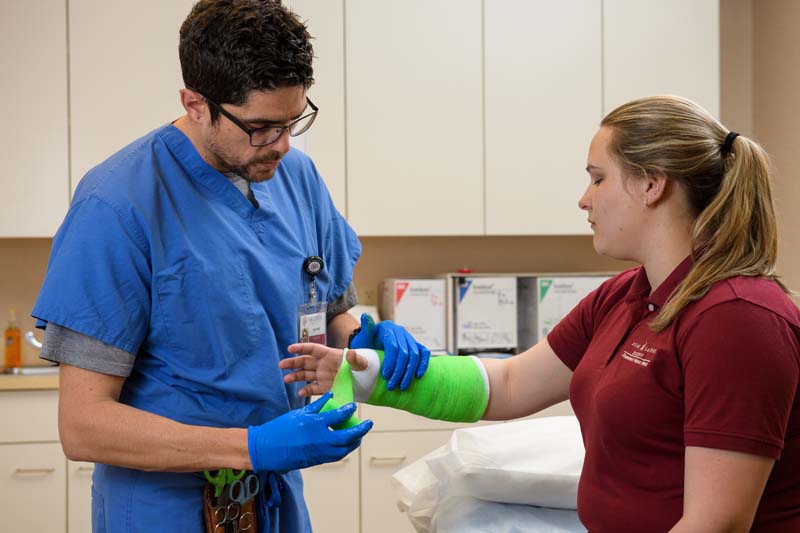
Throughout the month of March, athletic trainers across the nation are recognized for their commitment to helping people prevent injuries and stay healthy and active. National athletic trainer awareness month gives us an opportunity to acknowledge our hard working athletic trainer staff and spread awareness about their role in health care.
Athletic Trainer Role
Athletic trainers (ATs) are health care professionals that are highly skilled in the diagnosis and treatment of injuries, injury prevention, rehab and therapeutic intervention, and emergency medical management of injuries. ATs provide medical services to all types of patients, not just athletes participating in sports, and can work in a variety of job settings. In addition to working in a medical clinic or high school, athletic trainers can be found working in colleges, corporations, professional sports, the military, and hospitals. ATs specialize in preventative care and patient education, which reduces injuries and shortens rehabilitation time. Their unique qualifications allow them to treat patients in athletics, work, and life. This provides a continuum of care for patients that they wouldn’t receive in a different setting.
Athletic trainers are not the same as personal or fitness trainers. They are trained health professionals that follow an evidence-based medical model. They must have a bachelor’s degree or master’s degree and be licensed in the state they work in. More than 70 percent of athletic trainers hold at least a master’s degree. In addition, ongoing continuing education is required to enhance their skills and knowledge.
Our Athletic Trainers
At The Center, our 13 athletic trainers perform casting and splinting in our cast rooms, as well as provide injury and concussion prevention and management to local student athletes through The Center Foundation. They also provide sports medicine services to the Bend Elks Baseball Club, FC Bend Timbers, and other Central Oregon club sports teams. They work closely with physicians to ensure expert medical care both in the clinic and on the field.
We recognize the important health care role of athletic trainers. Although much of their work is done behind the scenes, their impact deserves recognition. Thank you for helping athletes and non-athletes stay safe and active.





